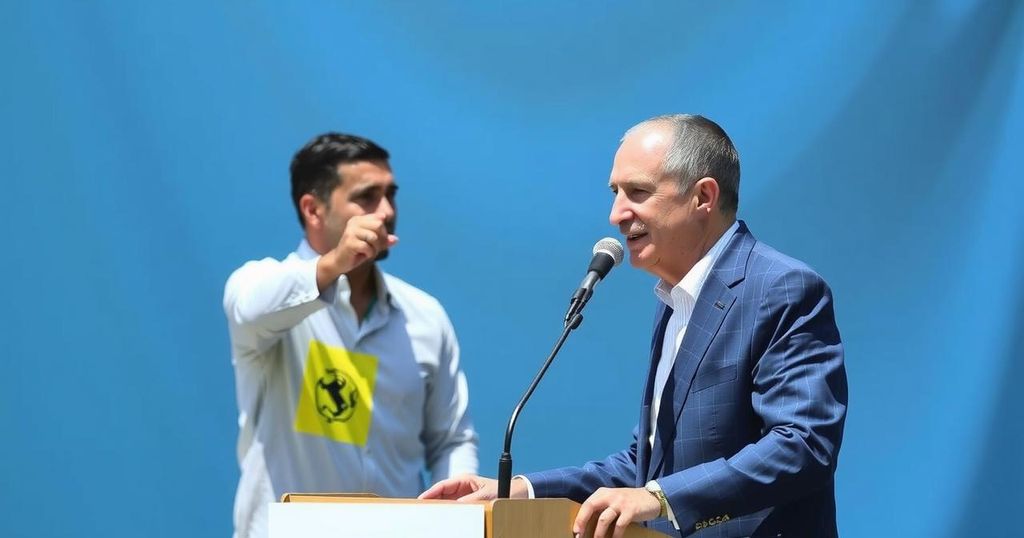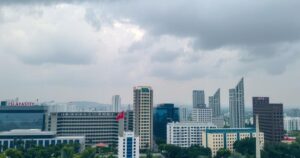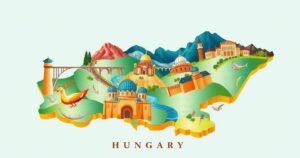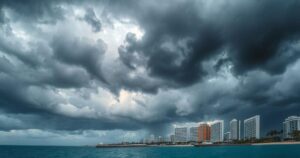Uruguay Set for Closely Watched Presidential Runoff Election

Uruguay is preparing for a closely contested presidential runoff election between opposition candidate Yamandu Orsi and continuity candidate Alvaro Delgado. Final polls indicate a tight race, with a slight edge for Orsi, who espouses a modern left policy. Delgado seeks to leverage the popularity of current President Lacalle Pou. Economic stability may play a crucial role in influencing voter decisions as the election approaches.
Uruguay is poised to cast its vote in the runoff election for president, marked by a contest between moderate candidates aiming to secure the leadership of the nation known for its tranquility and progressive policies, including legalized marijuana. The election features opposition candidate Yamandu Orsi from the Broad Front against continuity candidate Alvaro Delgado, who is supported by the conservative Colorado Party. Opinion polls indicate a tight race, with a possibility of fewer than 25,000 votes differentiating the two frontrunners.
Orsi, who captured 43.9 percent of votes in October, is advocating for a “modern left” approach while reassuring voters of a continuity in policies within the traditionally moderate national framework. Conversely, Delgado, having received 26.8 percent earlier, appeals to voters to “re-elect a good government” that builds upon President Lacalle Pou’s legacy. Both candidates are striving to secure support from the approximately 8.0 percent of voters who favored smaller parties in the first round.
Despite a lack of significant pledges in recent weeks from either side, the potential impact of economic stability looms large, possibly favoring Delgado. Observers note that there is a comparative absence of pressure for substantial political transformation among voters, a situation articulated by Nicolas Saldias, an analyst with the Economist Intelligence Unit. Thus, as the event unfolds, attention turns to whether Uruguay’s election will reflect wider global trends or maintain its unique political stability.
The political landscape of Uruguay, characterized by its mild and moderate nature relative to other Latin American countries, has been notably stable. In recent history, elections in several nations across the region have featured stark political divides. Uruguay’s relative lack of such divisions fosters a political environment where significant overlap exists between various political coalitions. This year’s election comes amid widespread global trends where incumbent parties are often losing ground, thus raising questions about Uruguay’s potential divergence from these patterns. The run-off election is set against the backdrop of economic considerations, with voters facing challenges such as inflation and rising living costs, which have influenced decisions in nations such as the United Kingdom, Japan, and the United States. As the electorate weighs their options, the economic performance and historical political moderation of the country will play pivotal roles in shaping voter sentiment and choices.
In conclusion, Uruguay’s presidential runoff election heralds a crucial moment in the nation’s political history. With tight competition between Yamandu Orsi and Alvaro Delgado, the outcomes could significantly influence both domestic policies and the political climate moving forward. Key factors such as economic stability alongside voter sentiment towards incumbent and opposition parties will be determinants in the electoral outcome. As results are anticipated, they signal not only the preferences of the Uruguayan people but also the nation’s stance amidst global electoral trends.
Original Source: www.begadistrictnews.com.au







